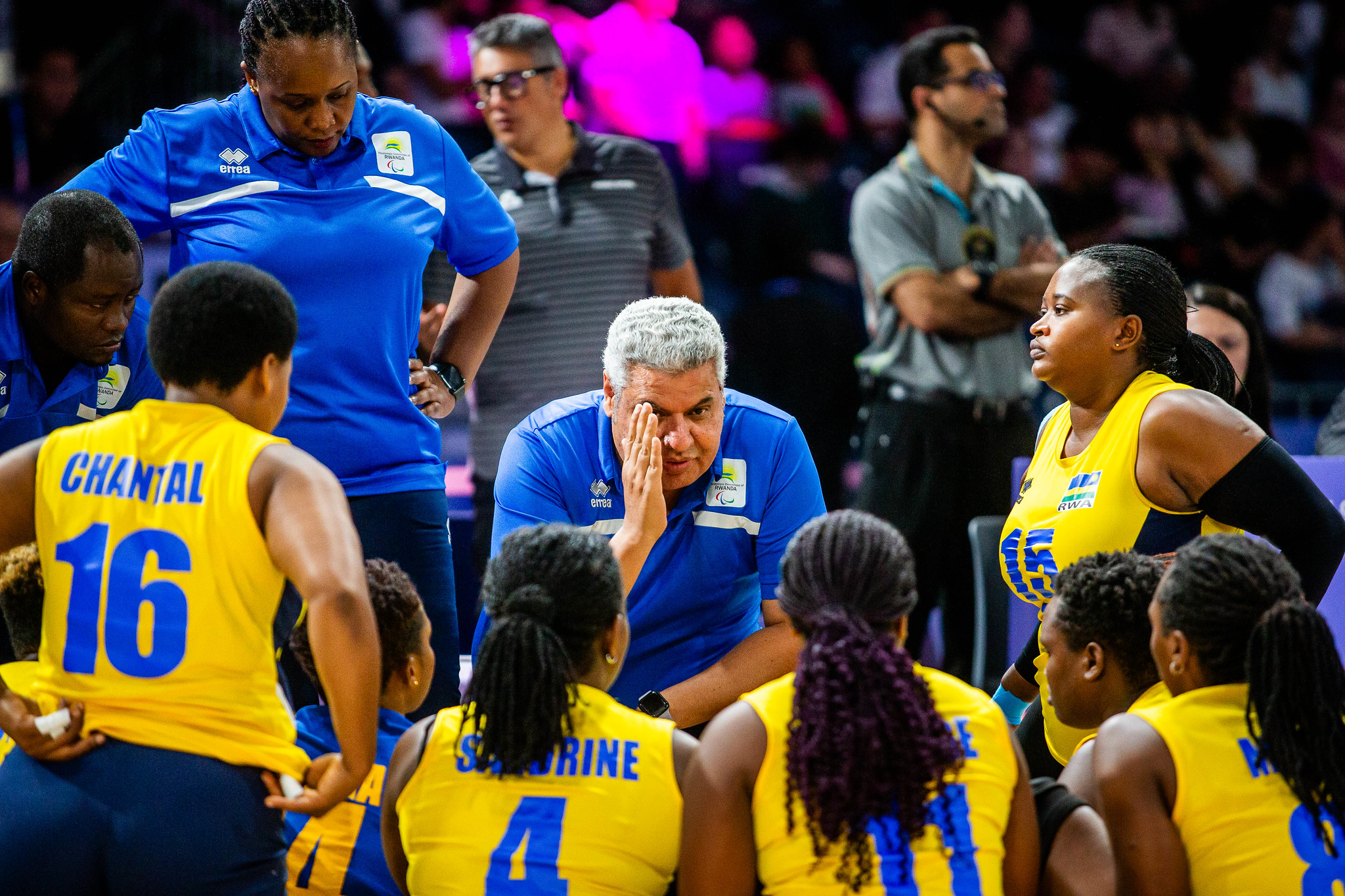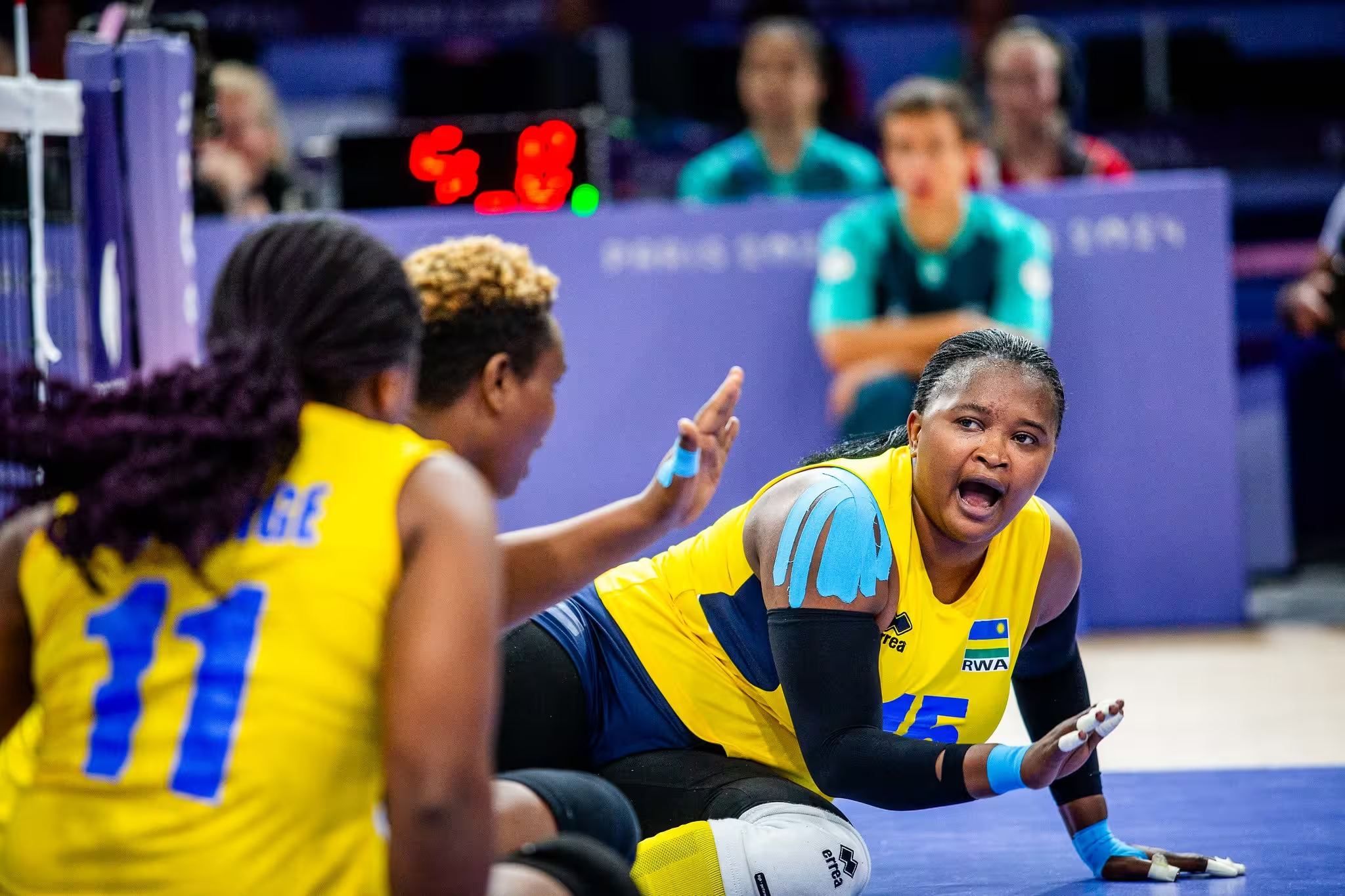Liliane Mukobwankawe knows the importance of progress, both for herself and for Rwandan sitting volleyball. After Rwanda’s victory over hosts France on Wednesday at the Paris 2024 Paralympic Gaames in North Paris Arena, she expressed her pride, “As the Rwandan team, defeating France was very important for us. It was the second time to play against them, we had a friendly match with them. We are happy with today’s victory.”
Mukobwankawe has become the face of Rwandan sitting volleyball, a symbol of the team’s progress on the global stage. As captain since 2016, she has led her team through three consecutive Paralympic appearances, including a significant victory against hosts France in Paris 2024. This win not only marked a major achievement for Rwanda but also highlighted Mukobwankawe’s leadership and the team’s growing presence in international competition.
For her, the path to this point has been far from easy. Reflecting on the early days of the sport’s development in Rwanda, she said, “I would say that development of the sport in Rwanda was quite difficult. We looked at it as just like able-bodied volleyball. We needed someone tall, someone who can block, someone who can be a good libero. It was very hard especially at that time that we didn’t have good facilities. Almost no one wanted to play because of the quality of the court.”
Things began to change as the government and local communities started to understand the sport better.
“From then, our government started to understand the sport, they were supporting us by trying to find a suitable court. We then started under the national team coach from able-bodied volleyball.”

Mukobwankawe takes pride in how far the sport has come in Rwanda.
“This is the third time we have joined the Paralympics, and now everyone back home knows about sitting volleyball, that a person with disability can live, can contribute to Rwandan society by way of sports.”
She is also keenly aware of the broader changes in attitudes toward disability in Rwanda. “Perhaps 30 years ago, people think that if one has a disability, that person can’t do anything: can’t go to school, can’t have access to services, can’t play. Now they understand. And…
Click Here to Read the Full Original Article at World ParaVolley…

